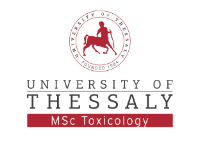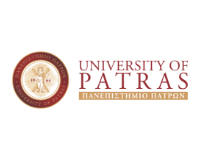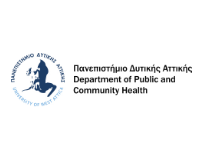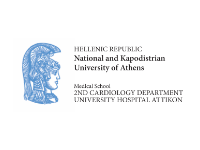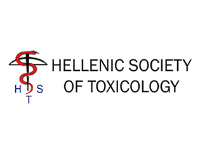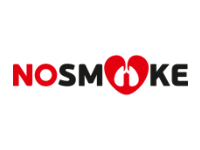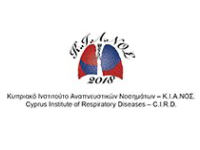About SCOHRE
Stepping up the efforts towards
a new broader approach to smoking control policies

About SCOHRE
Stepping up the efforts towards a new broader approach to smoking control policies

About SCOHRE
There is a need to step up the efforts towards a new broader approach to smoking control policies
Smoking cessation and prevention remain the most impactful, cost-effective interventions in medicine, but there is an ongoing discussion that limiting the negative effects of smoking can be also achieved by tobacco harm reduction.
SCOHRE is an International scientific Association of independent experts on Smoking Control & Harm Reduction, who seek an open and constructive dialogue to help come up with a new approach to smoking control policies.
Presidential Address
Eight million people die prematurely every year from smoking related diseases. WHO and national governments are trying for decades to control smoking but despite all efforts more than 1,1 billion people globally smoke, and still the total number of smokers is growing. Smoking cessation is the best way, if, and when it works. But are the current policies sufficient enough to face this vast health problem?
There is an ongoing discussion that limiting the negative effects of smoking may be also achieved by the use of less harmful alternatives than cigarettes i.e. Tobacco Harm Reduction, for those smokers who are not willing or cannot give up smoking with currently approved methods. SCOHRE, an International Association of independent experts was formed by people who explore novel methods to achieve Smoking cessation and Smoking Harm Reduction. It aspires to include scientists from all sectors: medical doctors, policy experts, behavioural experts, academics, and professionals, with the ambition to contribute to a constructive dialogue leading to more effective policies for the control of smoking and its detrimental effects to the society.
We believe that smoking cessation and smoking prevention is the primary goal of our societies and that the adoption of harm reduction policies may be considered as the 3rd pillar for tobacco control together with smoking cessation and smoking prevention to secure to a healthier future particularly for the younger generations.
Join us and work with us for more transparent and data-driven informed decisions and policies.
Executive board
Meet our SCOHRE Board members
Executive board
Meet our SCOHRE Board members
Study Groups
Smoking Control & Harm Reduction comprises a vast range of topics and SCOHRE members come from diverse specialties covering large spectrum (medical doctors, basic scientists, economists, social scientists, policy experts, behavioural experts, academics, researchers & professionals…). With this in mind, we created categories and sub-categories of interests for our members to facilitate member networking based on common interests and to create specialized events and material.
|
Categories & sub-categories |
|
PUBLIC HEALTH MEASURES AND LEGAL FRAMEWORK REGARDING SMOKING |
|
* Public awareness campaigns |
|
* Regulatory issues regarding smoking control |
|
* Prevention and regulation (taxation, packaging, marketing) |
|
* Public health impact of smoking |
|
* Burden of disease & economic & societal impact |
|
* Economics of smoking (demand & supply, costs) |
|
EPIDEMIOLOGY (HEALTH EFFECTS) OF TOBACCO USE (ALL TYPES, INCLUDING SMOKELESS TOBACCO) |
|
EDUCATION AND PREVENTION OF SMOKING |
|
TOXICOLOGY OF TOBACCO USE (ALL TYPES, INCLUDING SMOKELESS TOBACCO) |
|
SMOKING CESSATION PROGRAMMES (RESEARCH AND CLINICAL EVIDENCE) |
|
* Relapse and maintenance of smoking cessation and management of dual tobacco users |
|
* Online smoking cessation programmes (framework, efficiency and availability) |
|
* Education and training of health professionals in smoking cessation |
|
* Smoking cessation in special subpopulations (pregnancy, cancer, psychiatric diseases, drug addiction, alcohol addiction) |
|
* Behavioural change and advice, psychological support schemes for smoking cessation |
|
* Dietary changes and advice during smoking cessation |
|
* Effects in smoking cessation of non-combustible nicotine products (ENDS, HNB, snus, pouches etc.), i.e. clinical trials, population studies |
|
NTP: NOVEL TOBACCO PRODUCTS (ENDS: ELECTRONIC NICOTINE DELIVERY SYSTEMS, HTPs: HEATED TOBACCO PRODUCTS, OTHER - SNUS, etc.) |
|
* Basic research & clinical evidence |
|
* Youth uptake (gateway to smoking/diversion from smoking) |
|
* Likeability and willingness to try among smokers |
|
* Relative risk vs combustible tobacco products |
|
* Relative risk vs SLT |
|
HARM REDUCTION |
|
* Mapping harm reduction policies (worldwide landscape) |
|
* Harm reduction clinical evidence & longterm follow-up studies (snus, e-cigarettes, HTPs) |
|
* Economic impact |
|
* Ethics and human rights issues |
By-Laws
We believe that smoking control strategies should be reshaped to include harm reduction through alternative potentially lower risk products use, besides the traditional smoking cessation and smoking prevention measures.
Harm reduction can help those who for various reasons are not able to quit smoking. This group of smokers should not be abandoned by tobacco control policies. Where cessation repeatedly fails, switching to less harmful products will have a positive effect for many smokers.
In order to effectively achieve the above, there is a need to step up the efforts and benefit from the already existing solid expertise in many countries. This is the reason why we have established the International Association of international experts on Smoking Control & Harm Reduction incl. scientists (all sectors), medical doctors, policy experts, behavioural experts, academics or professionals, etc., which would allow for open and constructive dialogue and help to come up with a new broader approach to smoking control policies.








